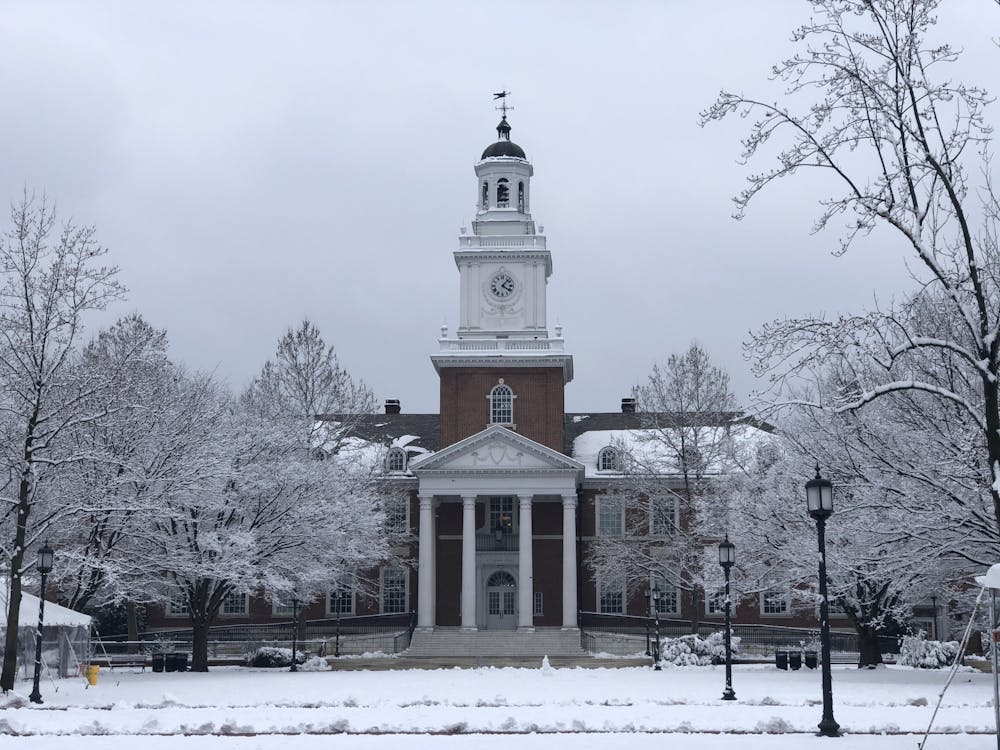University officials announced that Commencement will most likely be online. Although there is a possibility that the modality will change, it seems unlikely given the current severity of COVID-19. The virus has taken away many of our college experiences, but the one I’ll miss the most is being able to walk on stage at graduation in front of my friends, parents and professors.
While it’s true that it is sad that we cannot walk on stage, I wondered, do we “deserve” to be sad about a mere ceremony when people are getting sick and dying because of the virus? Friedrich Nietzsche would tell us that we absolutely can.
In The Gay Science, when discussing his idea that there exists no objective world, Nietzsche writes, “This mountain makes the landscape it dominates charming and significant in every way... Suddenly the mountain itself and the whole landscape around us, below us, have lost their magic. We have forgotten that some greatness, like some goodness, wants to be beheld only from a distance and by all means only from below, not from above; otherwise it makes no impression.”
Nietzsche thought that the same object, such as the mountain, can be seen differently based on different viewpoints. He asserted that there is no “objective” world that exists without our perception of it. The world must have a layer of “appearance” or “interpretation,“ a human contribution, in order to be seen and studied by human beings.
In other words, the world must be interpreted by humans to be seen by humans. This view is usually referred to as “perspectivism,” as our “perspectives” or the “interpretation” of the world are what drive our view of the world.
Let’s apply this to our own beloved building Gilman Hall. We can look at it from many different places: in front of the Milton S. Eisenhower Library, from the Levering Quad, etc. Although we would be looking at the same building from all these places, we would be seeing the same building differently. There does not exist one “objective” view of what the building is like.
There is another dimension to this which is important in understanding our COVID-19 struggles. Let’s compare my experience and a newly admitted freshman’s experience when looking at Gilman Hall. As I am finishing up my final year at Hopkins, I have spent many hours in Gilman Hall, so when I look at the building, I’m reminded of the fond memories of attending lectures, interacting with professors and even the stressful memories of working on an essay right before its due.
When a newly admitted freshman looks at Gilman, however, they will not be reminded of these experiences. There does not exist one objective view of what to feel or be reminded of when we look at the building, as every single one of us would have different backgrounds, experiences and perspectives.
In the past year, we have seen many people lose jobs, lose homes, become sick, be hospitalized or even die. When you see media reports of people in dire situations and if you are able-bodied, have a home, have enough food, have a job and so forth, you may feel that your struggles are insignificant. After all, how can you “struggle” when other people have it worse?
Nietzsche would tell you that you actually can struggle. It is tragic that people are becoming sick and dying because of the virus, but that does not invalidate your struggles. Those people have their own struggles, and yet again come from their own backgrounds, experiences and perspectives — so do you.
Yes, maybe it isn’t objectively the worst thing that this milestone will be online. It is nonetheless still sad as I will never get any kind of concrete closure for my hard work and effort put into getting my Hopkins diploma. This is my experience.
To those who may say that there is no way that my struggles are as valid as the struggles who may be in a “worse” situation than me because of COVID-19, Nietzsche would say this: “There is no ‘reality’ for us — not for you either, my sober friends.”
Phillip Yoon is a senior majoring in Philosophy and Mathematics from Charlotte, N.C.





